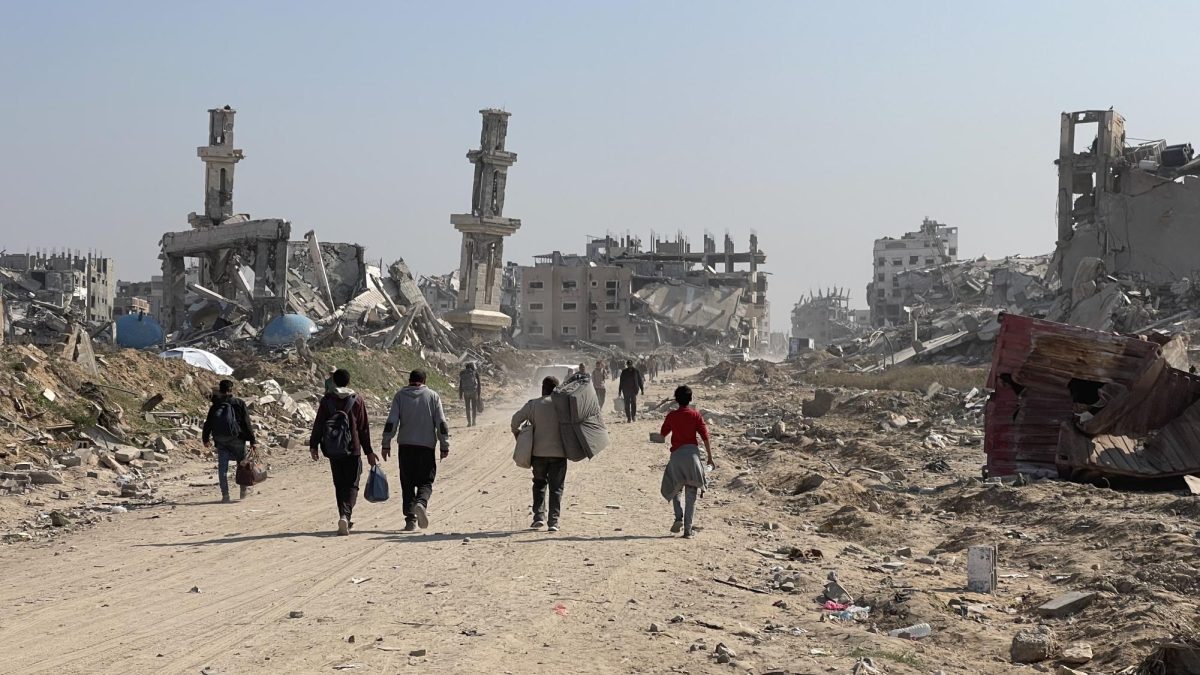*student names altered for privacy
Memories enter the forefront of the mind as colorful lights brighten the long, dark days, and cheerful tunes blast through the store. It’s the season of reflection: reflecting on what we have gained and what we have lost.

Grief is an integral part of the holidays. Associate Marriage and Family Therapist Megan Horcasitas explains that gatherings and celebrations remind many of those who have passed away — reopening the wound. Students who have lost their parents have their grief amplified due to the recent nature of the loss and their developmental stage.
“Compared to last year I think there’s a lot more heaviness,” student Samantha Walker, who lost a parent, said. “Especially being at the family gatherings this year was really hard, because everyone was together and talking about my dad.”
Overwhelming emotions, such as depression, are prevalent in individuals experiencing grief. According to a 2021 National Alliance on Mental Illness survey, three in five Americans feel that the holiday season negatively impacts their mental health. Depression may cause an individual to self-isolate, worsening the mental state.
Death is a taboo topic in the Western World. The discussion of death and grief is avoided, instilling a “get over it” mindset in many Americans. U.S. companies generally provide only five days of leave after a loss.
“We pathologize grief, in this culture,” Horcasitas said. “One year is not enough time for somebody to recover from the loss of someone they love. Maybe it is for some. But, most people don’t fit into that.”
Death is heavy. It’s understandable why our society tends to avoid discussing it. However, avoidance only magnifies the feelings of grief and loneliness — making it more difficult to process.
“A lot of people don’t like talking about their feelings because they like to keep it under [control], because they don’t think it matters that much or they don’t want to show their weakness,” student Lily Cooper, who lost a parent, said. “But, I know it’s also really healthy to talk about.”
Developing coping strategies to mitigate the effects of these difficult periods is essential. Healthy coping strategies can include self-care, exercise, and rest. Support systems of friends and family are especially helpful in processing grief.
It’s common to feel powerless to help those in mourning. Many people worry they will do something that could offend or hurt a bereaved individual, so they opt to do nothing. However, simply being there can provide immense comfort. 49% of individuals processing a loss primarily seek support from loved ones.
“Mainly what I see is people trying to counteract the instincts to isolate themselves by reaching out to people that they feel like they can trust and that will listen to them and hold space for them while they’re grieving,” Horcasitas said.
You can’t take away the pain, but you can be there for them.
“Just acknowledging that they’re there for me [is the most helpful],” Walker said. “Always allowing for a supportive space and not being judgemental.”
Asking yes or no questions such as, do you need someone to hang out with? rather than open-ended questions like how can I help? is preferable, as they allow the individual to make simple decisions.
Dealing with grief can be exhausting.
“We need time that we can be with our grief and we need times where we can take breaks from it,” Grief Support Counselor Mandy Mauerman said.
Encouraging grieving loved ones to be active, while also being receptive to their needs, can be beneficial for them.
“I started getting out more with my friends, just experiencing more things, and I started getting a lot happier,” student Thomas Flores, who lost his mother, said.
Holidays bring forth various challenges. However, the cheery spirit of the time can provide a sense of optimism for some. Seasonal festivities can serve as an outlet for grieving individuals since they may provide a sense of purpose.
“[A holiday event] really helped me keep persevering and doing all my work,” Walker said. “Having something to be happy about and look forward to.”
Some have developed traditions to honor those they have lost. Traditions include the creation of altars, the sharing of memories, and toasts.
“For Thanksgiving, we set a place for [my mom] at the table to remember her,” Flores said. “[I] just usually try to remember her during the holidays and include her if I can.”
Navigating loss is a unique experience for each person. It’s important to be aware that the feelings of grief brought up through the holiday differ. Whether that emotion is happy, sad, or angry — one must strive to recognize where they’re at and reach out for support. Most importantly if you are grieving, remember: you are not alone.
“There are those dark times when I get in my feelings,” Cooper said. “But, I also do love this season.”






























